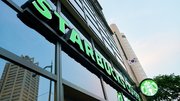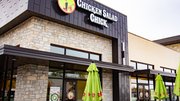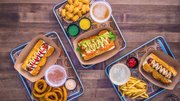News
Panda Express considers new service models
March 30, 2006
No one has to tell Panda Express that Asian food is growing in popularity. With more than 800 locations throughout the United States, Puerto Rico and Japan, Panda Express claims it's the world's quickest-expanding Chinese restaurant chain, with a presence in 36 states.
But the company understands the potential for losing its unique position as growth accelerates. Company officials pay close attention to the correlation between rapid expansion and failing execution.
With reported-service times of 10 minutes in the recent past, Panda management is now re-thinking its approach on speed and overall execution.
Operations
Panda brought aboard Larry Behm, vice president of operations, in April 2005 to enhance restaurant operations, particularly during peak sales hours. Behm had previously served as a Taco Bell executive, and right away, he looked at implementing drive-thru.
"The QSR drive-thru system is not the best thing to use in fast casual," Behm said. "The key thing I've learned is that speed is not the most important thing in fast casual."
Behm said customers don't mind waiting in line for a quality product, and in fact, consumers expect speed differences between QSRs and fast casuals. He said if a fast casual places a lot of emphasis on drive-thru, "then you're just going to be another McDonald's. So we're really challenging ourselves about the notion of speed. We're questioning all aspects of the drive-thru."
Panda discovered personnel played an important role in both speed and quality. To ensure accuracy, Panda instructs managers to place the store's best employee at the drive-thru window.
"In QSR, what matters is that you're in and out really fast, that you can eat it in your car. Our food isn't being eaten in the car," he said. "The promise that we're dealing with is predictability, consistency, but we're not going to try to be the fastest. We think that there's some advantage to making sure the customer gets the right kind of experience."
Wokking forward
John Mitchell, senior vice president of restaurant development, noted that the focus on high-quality core offerings has remained unfazed despite rapid growth, thanks largely to a menu that has been relatively fixed, but more important a commitment toward consistency. The focus is critical at a time when all eyes are looking toward controlled expansion.
"We're expanding faster now," Mitchell said. "In 2004, we opened 99. Last year, we opened 139. And our forecast for 2006 is to open 175."
Operating from non-traditional sites has been good business for Panda Express. Just five years after Panda Express opened, its first restaurant in a non-traditional venue opened in a Vons grocery store in 1988. The concept was a hit and quickly became a priority growth vehicle for future sites. Since then, units are found in:
· 45 Vons/Pavilions/Safeway locations
· three Giant Food stores
· three government buildings
· six airports
· 16 casinos
· six amusement parks
· five sport complexes
· one library.
The chain hopes to open 40 morerestaurants in non-traditional venues by the end of 2006, focusing on airports.
"We're in a fair number of airports, although traditionally we've not been able to expand into airports as much as we would like to," Mitchell said. "We've been reluctant in the past to license the concept, because a lot of those venues are controlled by major concessionaires, such as Sodexho and Aramark. This has been the impetus for us to launch a licensing program; we've just signed an agreement with Aramark, as one example."
In February, Panda Express was honored as the "Best Food and Beverage Brand Operator" by Airport Revenue News, a trade magazine. According to a news release, the chain received the award over 19 nominees.
New adventures
Panda Express is serving sushi at 16 U.S. locations, including Houston, Chicago and Las Vegas. There are several variations of sushi offered that vary from location to location. The Asian fast-casual offers California, sunrise, spicy tuna and rainbow sushi rolls. The restaurant also offers select fish on rice and several sushi combo packages. It's tested the rolls at locations near universities. The most-recent sushi location opened at Kansas State University in January.
"There's nothing Japanese-oriented around here, and it's been successful at other universities," said Adam Settler, general manager at the Manhanttan, Kan., store. "I think it'll go over really well."
According to Mitchell, Panda Express is breaking regional opportunities into three categories: core, emerging and new.
Core markets include Phoenix, Las Vegas, Los Angeles and San Francisco, where Panda Express has solid penetration though continues to grow rapidly. Emerging markets include Dallas-Fort Worth, Denver, Kansas City and Chicago.
"Then we have a category we call 'new markets,' where we have just entered and started developing what we call 'street stores' or 'non-mall stores' in the last two years," Mitchell said. "The only area that we're not currently developing our street store program is the northeast corridor of Philadelphia through Boston."
AsianFast Casual MagazineRestaurant Design / LayoutEthnicConsultant / AnalystCommunicationsOtherFranchisingOperations
 ChatGPT
ChatGPT Grok
Grok Perplexity
Perplexity Claude
Claude












